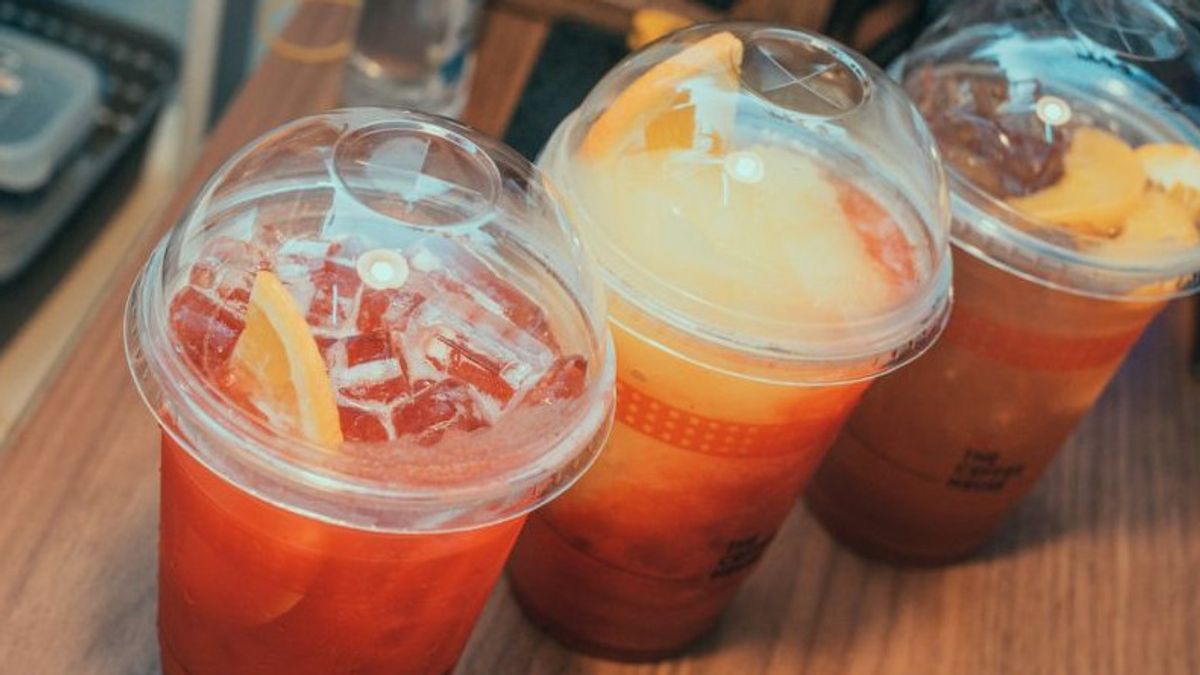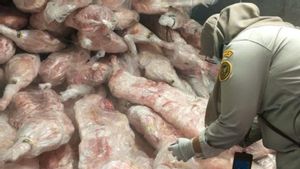JAKARTA The signing of the Food Policy Coalition Petition regarding the implementation of the excise policy on Packaging Sweetened Drinks (MBDK) continues. Until March 19, 2023 at 18.50 WIB, the petition entitled "Dialebites and Obesity Monitoring: Protect the Community from the Danger of Sweetened Drinks" has been signed by 15,826 people.
The Food Policy Coalition considers that the government should be worried about the high interest in consuming these products. Not healthy and clearly threatens the level of happiness and life expectancy of the Indonesian people.
This is because the MBDK, which is subsequently called sweetened drinks, is recognized as one of the factors that has contributed greatly to the increase in obesity cases in all countries, including Indonesia.
The Center for Indonesia's Strategic Development Initiatives (CISDI) reported that the consumption of sweetened drinks in Indonesia has increased significantly in the last 20 years, from around 51 million liters in 1996 to 780 million liters in 2014.
Indonesia in 2020, has even occupied the third position with the most sweetened drinks in Southeast Asia.
In line with the prevalence data for obesity among adults in Indonesia, which also doubled from 19.1 percent in 2007 to 35.4 percent in 2018 based on Basic Health Research (Rikerdas) 2018. What is even more sad is that obesity has also attacked many children aged 5-12 years.
Of course very worrying. Not only has an impact on physical health, but also on social and economic problems. Patients with obesity are at risk twice as big as chronic diseases.
What will happen to the Indonesian nation in 2045, if many young people experience diabetes, stroke, or the heart of the coronar? Instead of being able to play an active role in development, they actually burden the government's health financing.
The Ministry of Health has so far often provided education so that people can adopt a healthy lifestyle by consuming nutrient-rich foods and exercising regularly, but apparently not enough.
"So, the government needs to issue a policy of imposing excise on sweetened beverage products of 20 percent based on sugar content," wrote the Food Policy Coalition in its petition.
Also, it is necessary to tighten regulations regarding labeling nutritional information on sweetened beverage products, according to the Minister of Health of the Republic of Indonesia Regulation Number 30 of 2013 concerning Inclusion of Information on Sugar, Salt, and Fat Content and Health Messages for Food and Ready-to-eat Food. So that people realize the dangers of consuming too much.
"Restrictions on sweetened drinks through excise duty in Indonesia must be carried out immediately to protect the right to health and the right to access proper food availability," added the Food Policy Coalition.
The government, according to the CISDI report, can actually reflect on other countries. More than 40 countries, including the majority of ASEAN countries, have imposed excise on current sweetened beverage products.
Like in France in 2018, applying a graded scale tax, starting from 1 gram of sugar per 100 milliliters and rising to 0.20 euros per liter for drinks with more than 11 grams of sugar per 100 milliliters.
Then in Thailand since September 2018, applying specific excise rates, tiered by volume, ranging from 0.10 baht per liter for products with sugar content of 6 8 grams per 100 milliliters, 0.30 baht per liter for products with sugar content of 810 grams per 100 milliliters, 0.50 baht per liter for products with sugar content of 1014 grams per 100 milliliters, and 1 baht for products with sugar content of more than 14 grams per 100 milliliters.
In fact, not only for natural sugar sweetened products (sukrosa), excise rates also apply to sweetened beverage products with non-calorie sweeteners or called low-or zeroie sweetened beverages (LCSBs)
"The evaluation study in Thailand and the Philippines shows that the implementation of MBDK excise is effective enough to reduce public consumption by 8.4 percent to 17.7 percent," CISDI wrote.
Meanwhile, for Indonesia, CISDI predicts that the imposition of 20 percent of excise will reduce the consumption of sweetened drinks by 24 percent. Of course this also has a positive impact on the decline in the prevalence of obesity and its derivative diseases.
Indonesia in 2020, actually has rolled out a plan to impose excise duty on sweetened beverage products with a statement from the Ministry of Finance. This policy also received a positive response from the DPR RI.
There are three categories of sweetened drinks that will become new Excise Goods (BKC). First, sweetened drinks that contain sweeteners in the form of sugar with certain levels. Second, sweetened drinks with natural sweeteners whose boundaries are not limited, and third, sweetened drinks with artificial sweeteners without setting limits.
The Director General of Customs and Excise at the Ministry of Finance, Askolani, has not been able to confirm when the excise withdrawal of MBDK products will take place. (Between)
However, apparently the plan has not yet been implemented. In fact, the President has targeted excise revenue from sweetened beverage products of IDR 3.08 trillion according to the basis of Presidential Regulation or Presidential Regulation Number 130/2022 concerning Details of the State Budget for Fiscal Year 2023,
The Director General of Customs and Excise at the Ministry of Finance, Askolani, in her statement did not explain the details of the reasons related to it.
He only said, "Because it is planning, the implementation of excise duty on plastic products and sweetened drinks will be adjusted to economic and social conditions in 2023".
The English, Chinese, Japanese, Arabic, and French versions are automatically generated by the AI. So there may still be inaccuracies in translating, please always see Indonesian as our main language. (system supported by DigitalSiber.id)









